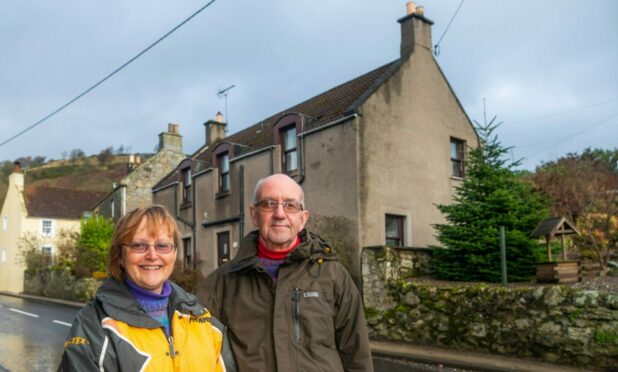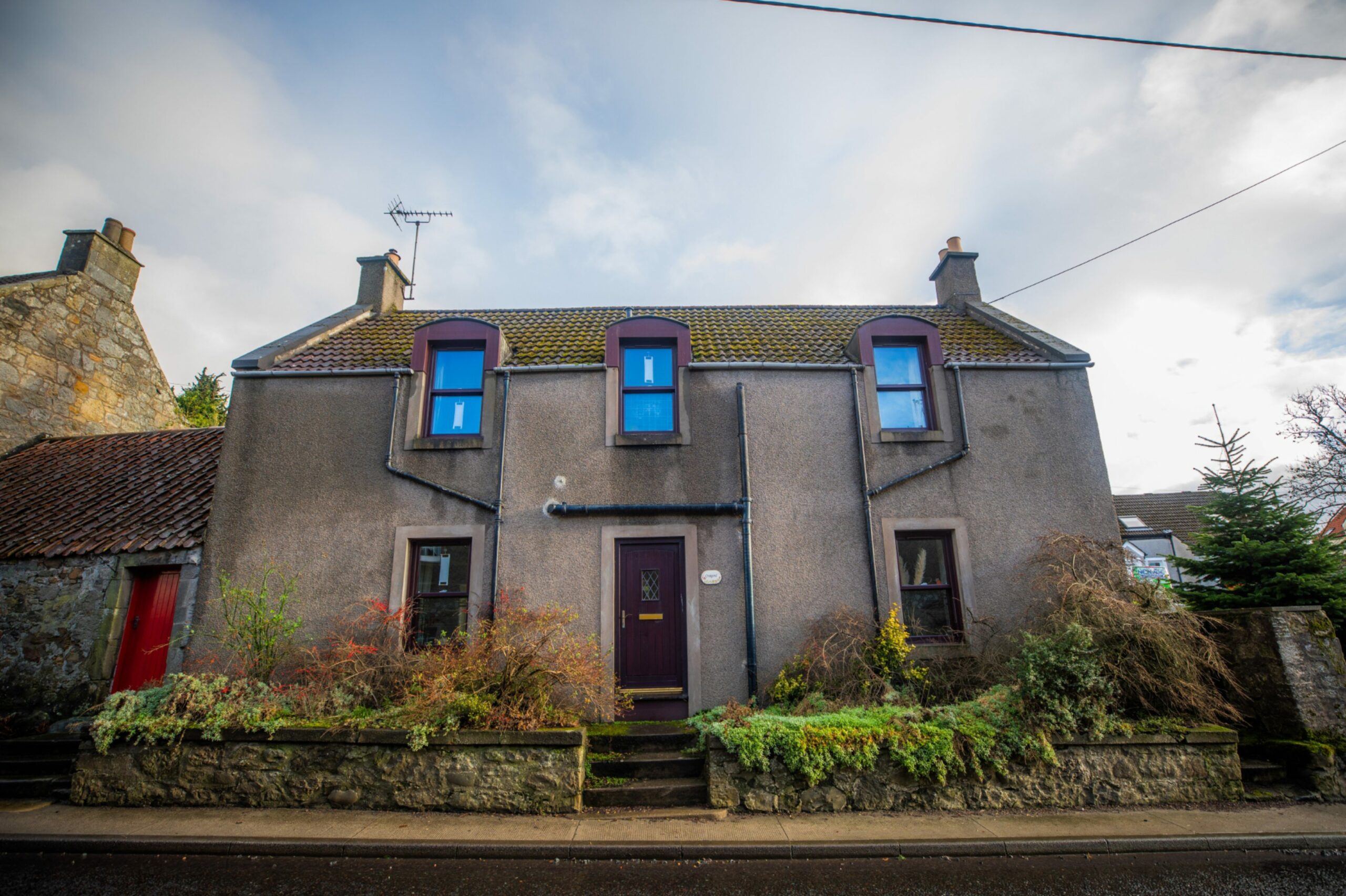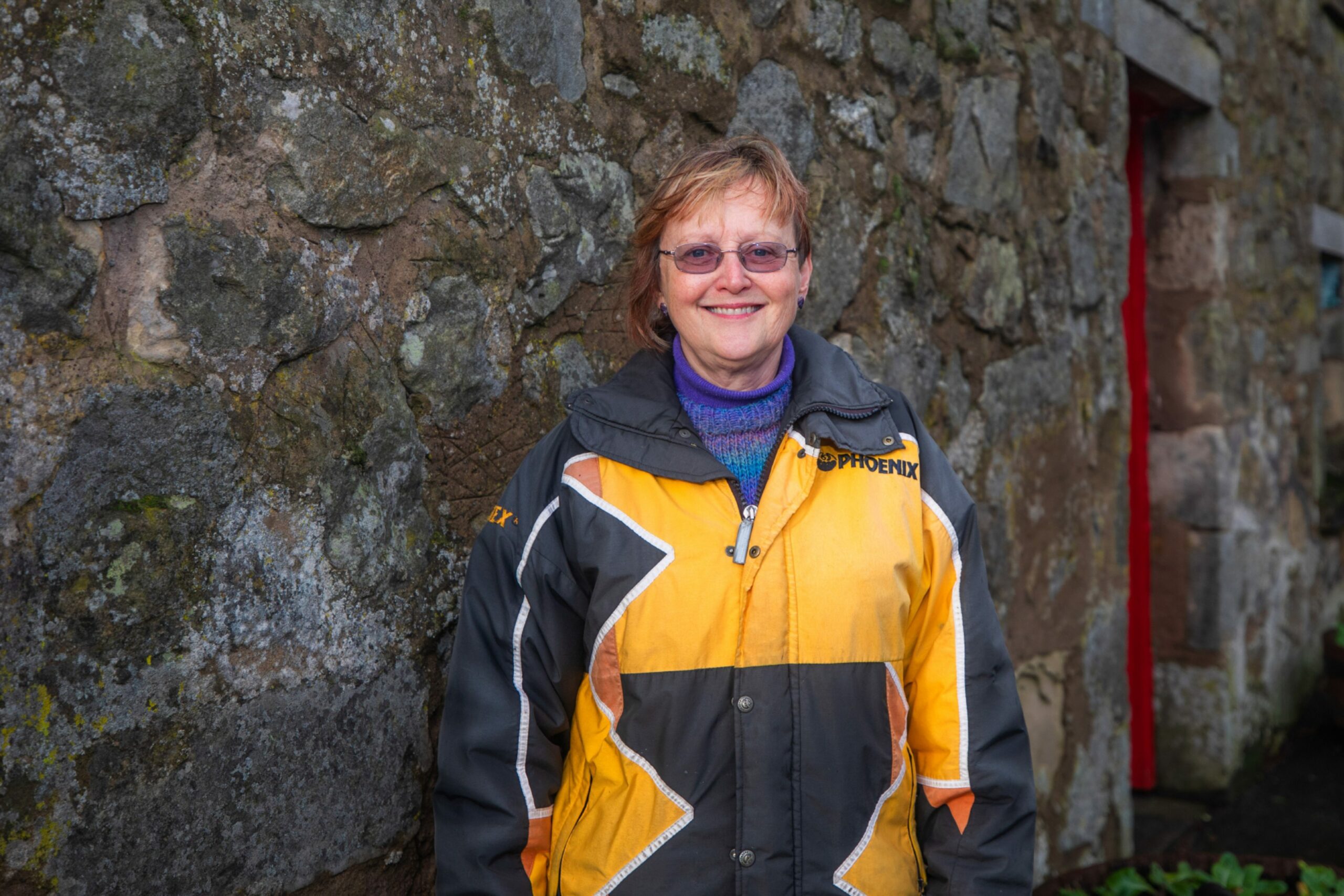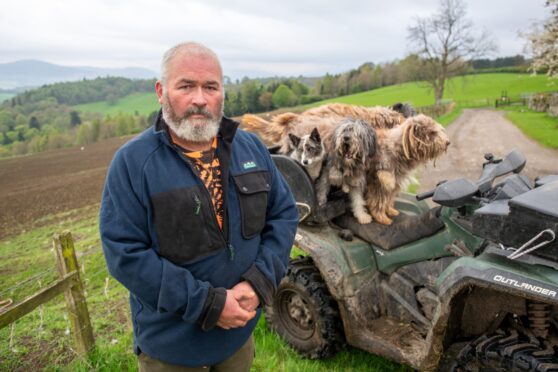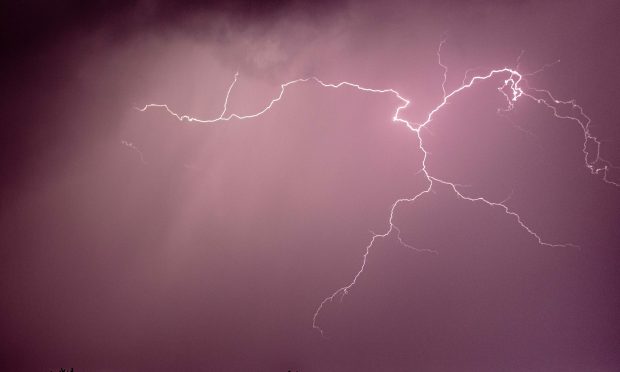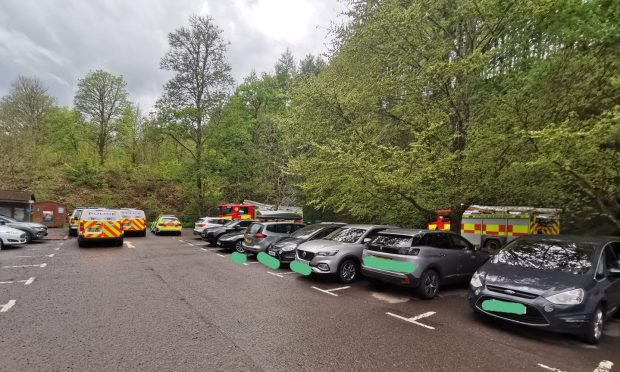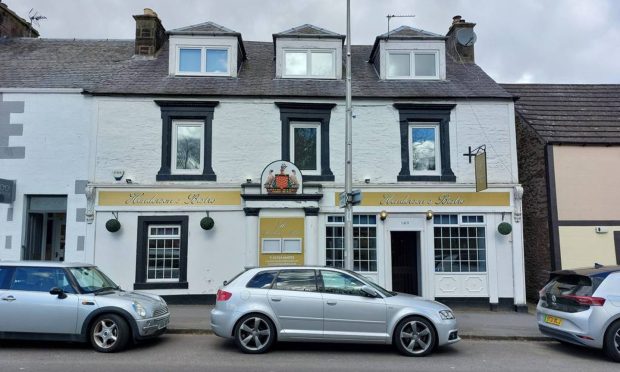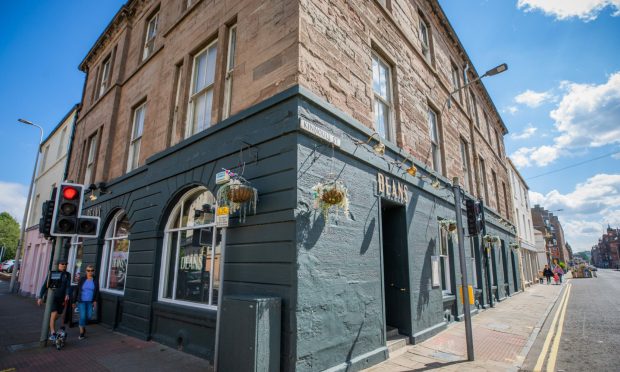Perth and Kinross Council has stopped a Kinross couple from cutting their monthly energy bills.
Julie Close, 59, and Richard Hughes, 65, wanted to install seven solar panels on their home on Main Street in the village of Scotlandwell.
The recent increase in energy bills has been particularly tough for the couple because they live in a stone-built home dating back to the 1600s.
They are facing average monthly charges of £600 when the UK Government’s energy help scheme ends in April.
So they lodged a planning application for a solar scheme that would have reduced their electricity outlay by around £1,500 per year.
But council officers refused the proposal, citing “detrimental impact” on both the conservation area and setting of adjacent listed buildings.
As the couple ponder whether to appeal, they have issued a warning that the village could become a “rural ghetto” if the council doesn’t relax its conservation rules.
This story also highlights other measures they have taken to reduce energy consumption, including staying in a motorhome at the UK’s coldest place.
Cosiness comes at a cost
The village of Scotlandwell does not have a mains gas supply and in 2011 the property’s oil tank sprung a leak.
At this time the couple decided to move away from oil and go completely electric for heating and hot water.
They added night storage heaters, a zonal infra-red heating system, loft insulation, double glazing and insulated flooring.
Julie says the measures have helped make the house “cosy” but this comes at a cost.
Solar panels would deliver free electric in the summer
Under-floor insulation is not possible due to the lack of space beneath the house.
It has also been difficult to find companies prepared to fit external wall insulation due to the logistical challenges regarding parking and storage.
So a solar scheme is a viable option and would reduce their energy costs by 15%.
“The system would have paid for itself in seven years and at least we would be doing something to help reduce our carbon footprint,” said Julie, who has lived in the property for 30 years.
“It would mean that in the summertime electricity would be more or less free.”
‘Rural ghetto’ if rules remain
But council officers felt the proposal was contrary to the Planning (Listed Buildings and Conservation Areas) (Scotland) Act 1997.
This pays “special regard” to the desirability of preserving or enhancing the character or appearance of a designated conservation area.
Julie says the law is “completely out of date and not fit for purpose”.
She added: “In today’s world, with the focus on energy efficiency, we thought we would be in with a chance of getting permission.
“Five years ago we wouldn’t be but now we thought we might be.
“The next door neighbour and person opposite us have listed buildings.
“We don’t, and if we can’t do anything they will be able to do absolutely nothing.
“So what happens when we all get to an age that we have to sell? Who is going to buy these properties?
“It’s just going to end up being a rural ghetto eventually.”
Elderly staying in one room only
Julie says she has spoken to elderly people who now spend their days only in one room to cut down on heating costs.
“We have just hit pension age,” she said.
“If we were still working then the overall cost would be cheaper because we wouldn’t be in the house all day – assuming you don’t work from home.
“A lot of retired people are in older properties and have to heat the house all day.
“They will be freezing or just living in one room.
“It is frustrating when you are trying to do something about it.
“It is not even as though the council come back with anything hugely constructive. It’s just a ‘no’.”
Head to UK’s coldest place to cut down on heating costs
An irony with the couple’s predicament is that they head to Braemar – the coldest place in the UK – to save on heating costs.
“We have a motorhome and keep our overall cost down by going away one week a month,” Julie said.
“If we close the house down and drain the taps then it is cheaper for us to live in the motorhome hooked up in Braemar.
“We try to go away six days out of the month to keep the heating costs down.
“It is a double whammy – we enjoy being away in the van and it reduces our heating bill.”
